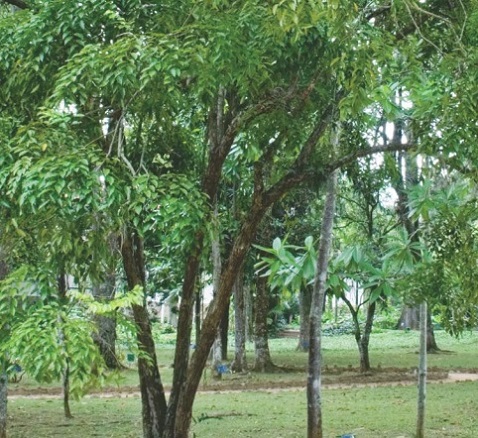Phytochemical Geissolosimine Exhibits Anti-Cancer Potential as It Functions as An Inhibitor of MDM2-P53 Interaction
Nikhil Prasad Fact checked by:Thailand Medical News Team May 12, 2025 9 months, 1 week, 5 days, 21 hours, 31 minutes ago
Medical News: Researchers Identify Plant-Derived Alkaloid as a Potential Cancer Therapeutic Through Advanced Computer Simulations
A team of scientists from has uncovered compelling evidence that a natural plant-based compound called geissolosimine could be an effective tool in the fight against cancer. The compound appears to work by interrupting the harmful interaction between two key proteins—MDM2 and p53—that is frequently responsible for the uncontrolled growth of cancer cells.
 Geissolosimine is an indole alkaloid primarily isolated from the stem bark of Geissospermum
Geissolosimine is an indole alkaloid primarily isolated from the stem bark of Geissospermum
vellosii, a plant native to the Amazon rainforest.
This
Medical News report details how geissolosimine, an alkaloid found in a tropical tree, was discovered through a cutting-edge computational study, offering a new avenue for the development of cancer treatments that are less toxic and potentially more effective than current chemotherapies.
Understanding the MDM2-p53 Connection in Cancer
In healthy human cells, the protein p53 plays a vital role as a tumor suppressor—it halts cell division when DNA is damaged, preventing mutations from spreading. However, in nearly half of all human cancers, p53 is rendered inactive not by mutations but by overactivity of another protein called MDM2. This protein binds to p53 and disables its tumor-fighting functions.
Reactivating p53 by inhibiting its interaction with MDM2 is a promising therapeutic approach. While pharmaceutical companies have developed synthetic MDM2 inhibitors like SAR405838 (currently in clinical trials), researchers believe that natural compounds like geissolosimine may offer a more sustainable and safer alternative.
What is Geissolosimine?
Geissolosimine is an indole alkaloid primarily isolated from the stem bark of Geissospermum vellosii, a plant native to the Amazon rainforest. Traditionally studied for its anti-malarial effects, geissolosimine has now attracted attention for its potential anticancer properties, especially its ability to disrupt the harmful MDM2-p53 interaction.
How the Study Was Conducted
The research team conducted an extensive in-silico (computer-simulated) analysis of 502 different alkaloid compounds using several high-level techniques including:
-Quantitative Structure-Activity Relationship (QSAR) modeling to predict biological activity
-Structural similarity analysis comparing natural compounds to known drugs
-Molecular docking to study how well the compound fits into the active site of MDM2
-Molecular dynamics simulations (MDS) to examine the stability of the drug-protein interaction over time
-Pharmacokinetics and toxicity profiling to assess
its suitability as a drug
Among all the tested compounds, geissolosimine stood out with a predicted pIC50 value of 7.013 (indicating strong inhibitory potential), a molecular docking score of -10.9 kcal/mol (better than SAR405838’s -10.8), and promising pharmacokinetic features such as good gastrointestinal absorption and blood-brain barrier permeability.
Key Findings from the Study
-
Superior Binding Affinity: Geissolosimine binds to the MDM2 protein at crucial amino acid sites more strongly than the synthetic drug SAR405838.
-Stable Molecular Dynamics: In a 100-nanosecond simulation, geissolosimine demonstrated stable binding to MDM2, suggesting it would remain effective over time inside the body.
-Better Pharmacokinetics: The compound was predicted to be non-toxic and drug-like, meeting major drug development benchmarks like Lipinski’s Rule of Five.
-No Liver Enzyme Interference: Unlike some synthetic compounds, geissolosimine did not inhibit key liver enzymes such as CYP1A2, reducing the risk of liver toxicity.
The combination of these features makes geissolosimine a strong candidate for further laboratory and clinical testing.
How Other Natural Alkaloids Have Helped Fight Cancer
Geissolosimine joins a list of natural alkaloids that have made significant contributions to cancer treatment. Notable examples include:
-Vincristine and vinblastine, derived from the Madagascar periwinkle plant, used to treat leukemia and Hodgkin’s lymphoma.
-Camptothecin, isolated from the Chinese tree Camptotheca acuminata, used to develop topotecan and irinotecan for colon and ovarian cancers.
-Homoharringtonine, from the Chinese tree Cephalotaxus harringtonia, approved in 2012 for chronic myeloid leukemia.
-Paclitaxel (Taxol), from the Pacific yew tree, now a cornerstone in chemotherapy regimens.
Big pharmaceutical companies often modify these natural alkaloids or develop synthetic analogues for commercial use. However, concerns about toxicity and resistance have revived interest in discovering and developing new natural alkaloids like geissolosimine.
What Happens Next?
While the current study is purely computational, its findings strongly suggest that geissolosimine warrants further investigation. The next steps include:
-In vitro laboratory experiments to test its cancer-inhibiting properties on real cells
-In vivo animal studies to assess safety and efficacy
-Eventually, clinical trials if early experiments are successful
Given the pressing need for novel cancer therapies that are both effective and safer, geissolosimine could emerge as a valuable addition to the oncology toolkit.
Conclusion
The identification of geissolosimine as a potential inhibitor of the MDM2-p53 interaction marks an exciting development in cancer research. Derived from a natural source and demonstrating strong binding ability, stability, and drug-likeness in simulations, geissolosimine could offer a less toxic and more accessible alternative to existing MDM2 inhibitors. While further testing is needed, this compound stands as a promising lead in the ongoing search for next-generation anti-cancer drugs. The integration of natural alkaloids into modern therapeutic strategies reminds us that nature continues to be a rich source of medical innovation.
The study findings were published in the peer-reviewed journal: PLOS One.
https://journals.plos.org/plosone/article?id=10.1371/journal.pone.0323003
For the latest on Herbs and Phytochemicals, keep on logging to Thailand
Medical News.
Read Also:
https://www.thailandmedical.news/news/herbs-and-phytochemicals-opuntia-ficus-indica-l-mill-a-herbal-plant-with-anticancer-potential
https://www.thailandmedical.news/news/herbs-and-phytochemicals-anticancer-potential-and-molecular-targets-of-the-phytochemical-pristimerin-in-human-cancers
https://www.thailandmedical.news/news/herbs-and-phytochemicals-hong-kong-researchers-find-that-the-phytochemical-isoliquiritigenin-from-licorice-can-inhibit-pancreatic-cancer-progression
https://www.thailandmedical.news/articles/herbs-and-phytochemicals
https://www.thailandmedical.news/pages/thailand_doctors_listings
